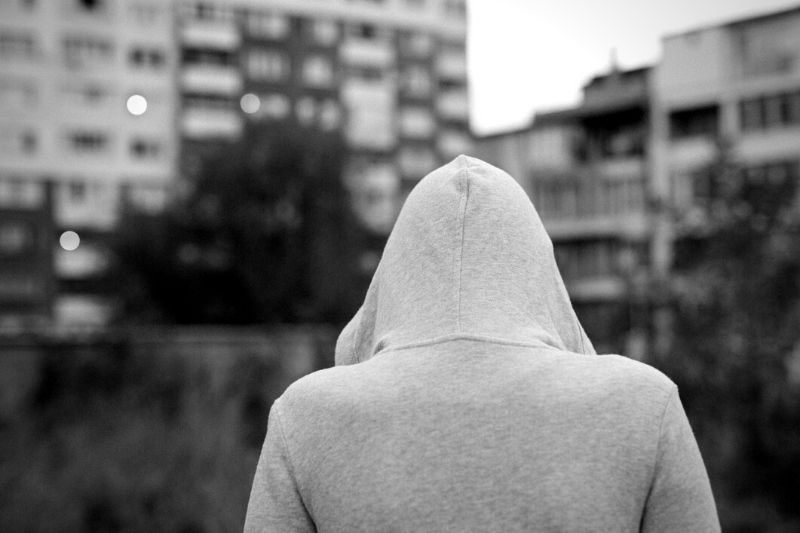When we commit to change the world at some point we shall discover that reform and reaction are cyclical. We cannot bank progress in order to finance the next step. The process often seems more like the rock of Sisyphus, where the rock pushed towards the top of the hill inevitably falls back over the body of Sisyphus and he has to begin again. That is the point at which we decide whether to hang in or slip away.

This has been true of the treatment of refugees in Australia where small gains won were overwhelmed by the aftermath of Tampa and then the dispatch of asylum seekers to Nauru and Manus Island. People with mental illness and intellectual impairment have also seen cycles of attention, reform and neglect. Indigenous Australians, too, have witnessed fine words and symbolic change followed by interventions without consultation. In prison policy, and particularly the treatment of youths who have broken the law, periods of person-based reform have been followed by harsh and inflexible laws.
The discovery that reform is precarious and that the labour invested in it has apparently borne no lasting fruit tests our commitment. We then must choose between nostalgia or withdrawal and continuing investment in reform. Whatever our response, however, it remains important to understand why reform is cyclical and does not follow a straightforward line of progress.
A significant part of the explanation is that reform presupposes a convergence of favourable conditions. It relies on popular support, propitious cultural attitudes, and investment — both rhetorical and material — from government. This is evident in the treatment of children who are mentally ill, refugees, Indigenous, or who are caught in the justice system. In each case their treatment has sometimes invoked popular sympathy, appealed to the cultural instinct to protect children, and won concessions from government. That convergence, however, often lasts only until the next alarm at children behaving badly or until the next pressure on the budget. Lasting reform demands deep community support and sustained investment.
The way in which our culture imagines children makes support for disadvantaged children fickle. It draws a sharp line between good children and bad children. Good children are sweet, loving, attractive, amusing and vulnerable. Bad children are tough, twisted, unsociable, untrustworthy and unlikeable. The former, with fair hair and blue eyes, abound in advertisements for any breakfast serial. The latter, also with deceptive fair hair and blue eyes, feature as aliens in horror movies or, with dark hair and skin, in Nordic noir. Good children are naturally virtuous and always forgiveable. Bad children are bad seed, fixed in evil and beyond forgiveness. They must be controlled and shunned.
This polarised myth of children makes support for them precarious. The sympathy that they win for their vulnerability can easily give way to distaste and suspicion as they are defined by the unpopular and different group to which they are assigned. They are seen, not primarily as children, but as asylum seekers, insane, or criminal. They are classified as bad children. Politicians who have an interest in cutting public expenditure often emphasise the social and ethnic groups to which the children belong. Even the natural sympathy they evoke can be turned against them. Refugee children can be portrayed as planted by their parents as a way to secure visas, evoking the images of alien children wreaking havoc in an idyllic village.
'The treatment of children as fully human beings will then continue to depend on a strongly held unfashionable ethic that is built on respect for them for their shared humanity and not for their virtue, their level of education or their charm.'

The bifurcated view of children as good or bad is unrealistic and so has harmful effects. It prompts us to deny the faults and capacity for evil in our own children, and discourages us from understanding and feeling compassion for children who have suffered multiple disadvantage. It divides children into those who have no need for redemption and those who are beyond it. It leads us to see as acceptable the placement in adult prisons of irredeemably bad children with irredeemably bad adults, the rounding up and jailing of bad children by criminalising their bail breaches, and the holding of them in solitary confinement. It leads public servants and politicians to accept the detention and separation from their families of refugee and of mentally ill children.
In this view the proper response to crime is to punish perpetrators and not to encourage reform of life. In theological terms it does not believe in original sin and so leaves no space for subsequent redemption.
It is tempting to believe that these attitudes to disadvantaged children will change as the progressive strands of culture dominate. That, however, is doubtful. Progressive attitudes in a culture with high respect for scientific development have been appealed to justify both cruelty and respect for children. They justified the exploitation of child labour in the new economy of the industrial revolution and Charles Dickens’ protest against it. In Australia eugenic theories and their claimed basis in modern science were part of the world view that saw as inevitable the dying of the lesser Indigenous race and the need to take children away from their families. It also lay behind the confinement of mentally ill children as a way of avoiding contamination of the white Australian race and the failure of successive governments to provide for their care.
The Nazis gave the radical Eugenic programs advocated for in Australia a bad name. In the face of the developments of information, genetical and microengineering technologies and the effect they will have on human life, there is no reason why such programs will not return brightly polished in other forms. People will continue to look to technology to remedy the evils among the possibilities it brings. The treatment of children as fully human beings will then continue to depend on a strongly held unfashionable ethic that is built on respect for them for their shared humanity and not for their virtue, their level of education or their charm.
Andrew Hamilton is consulting editor of Eureka Street, and writer at Jesuit Social Services.
Main image: Teenager in hoodie. (Getty images)